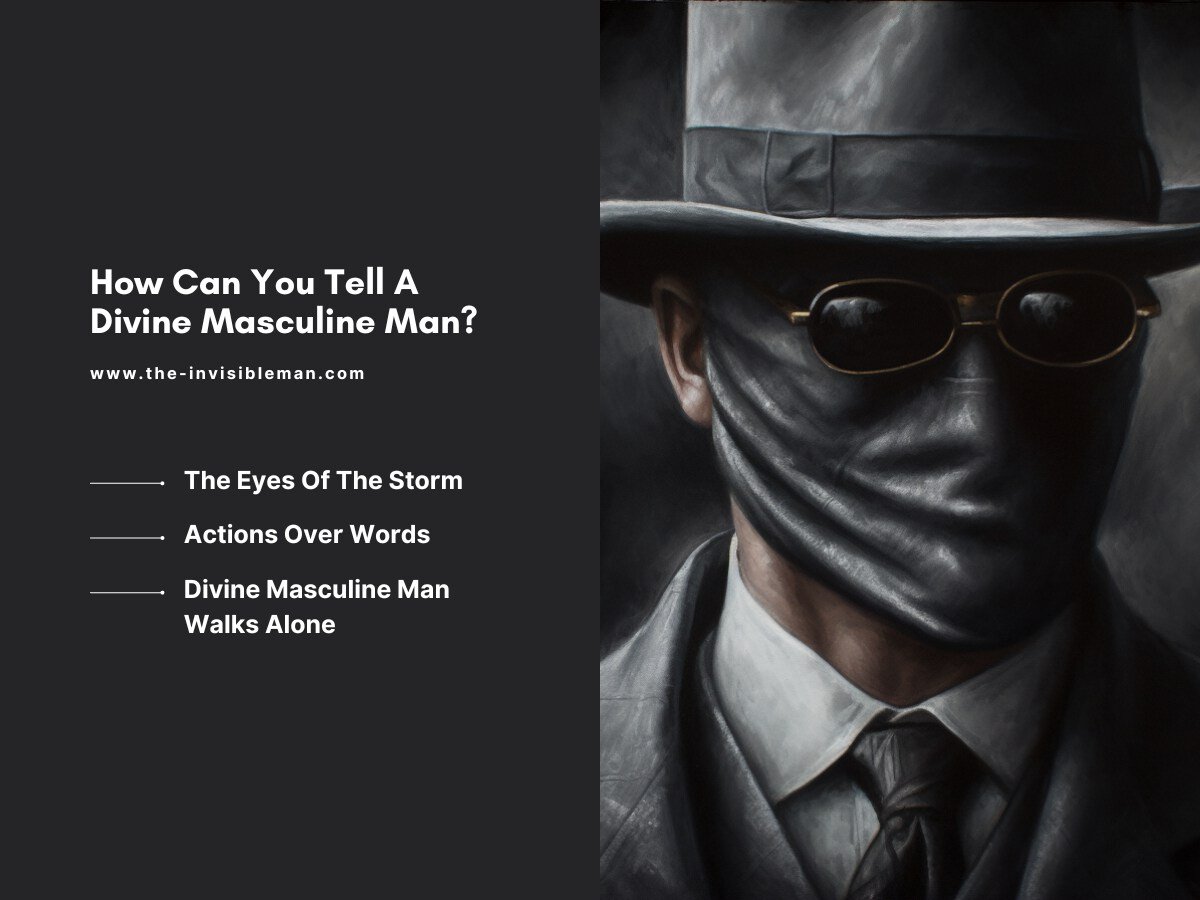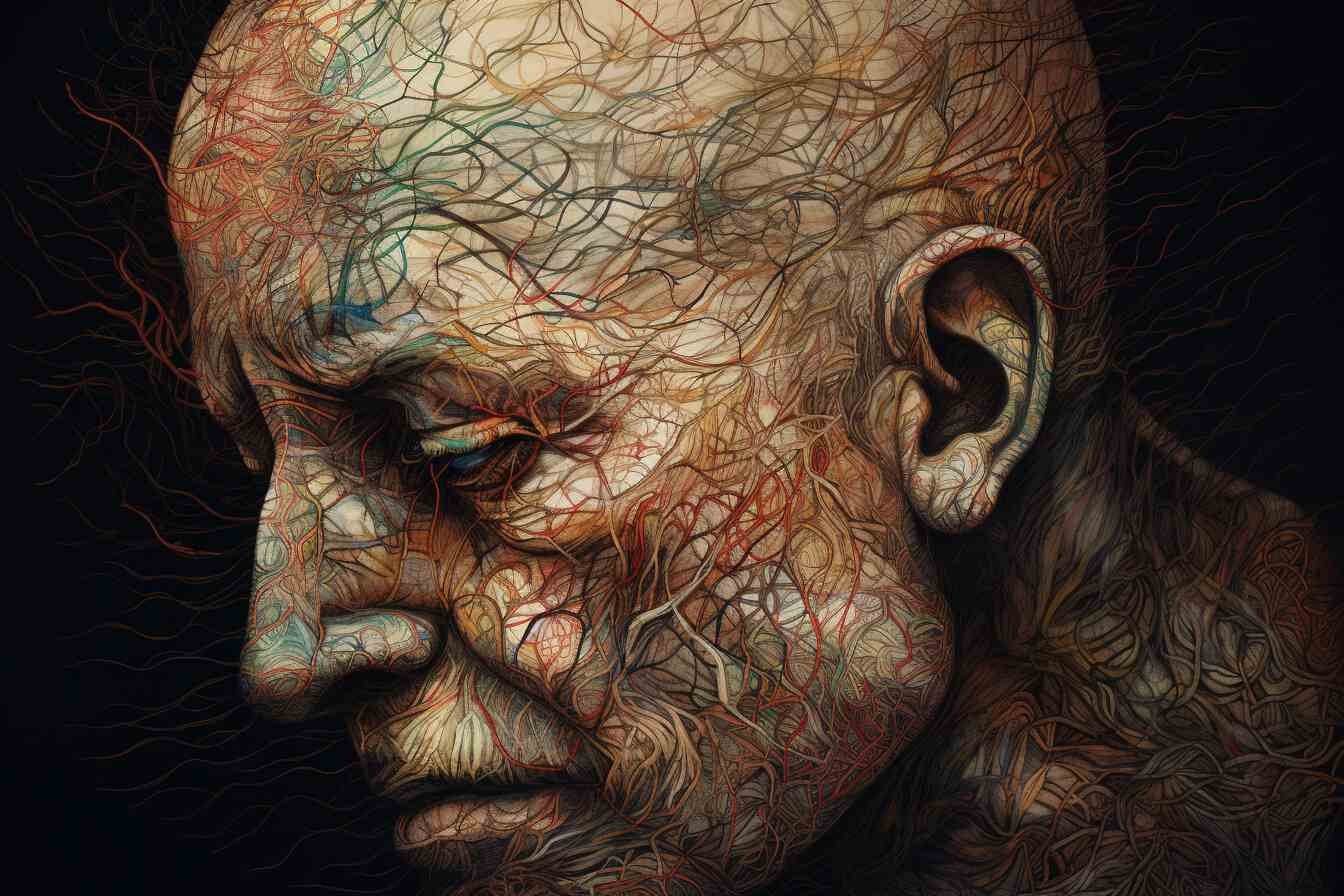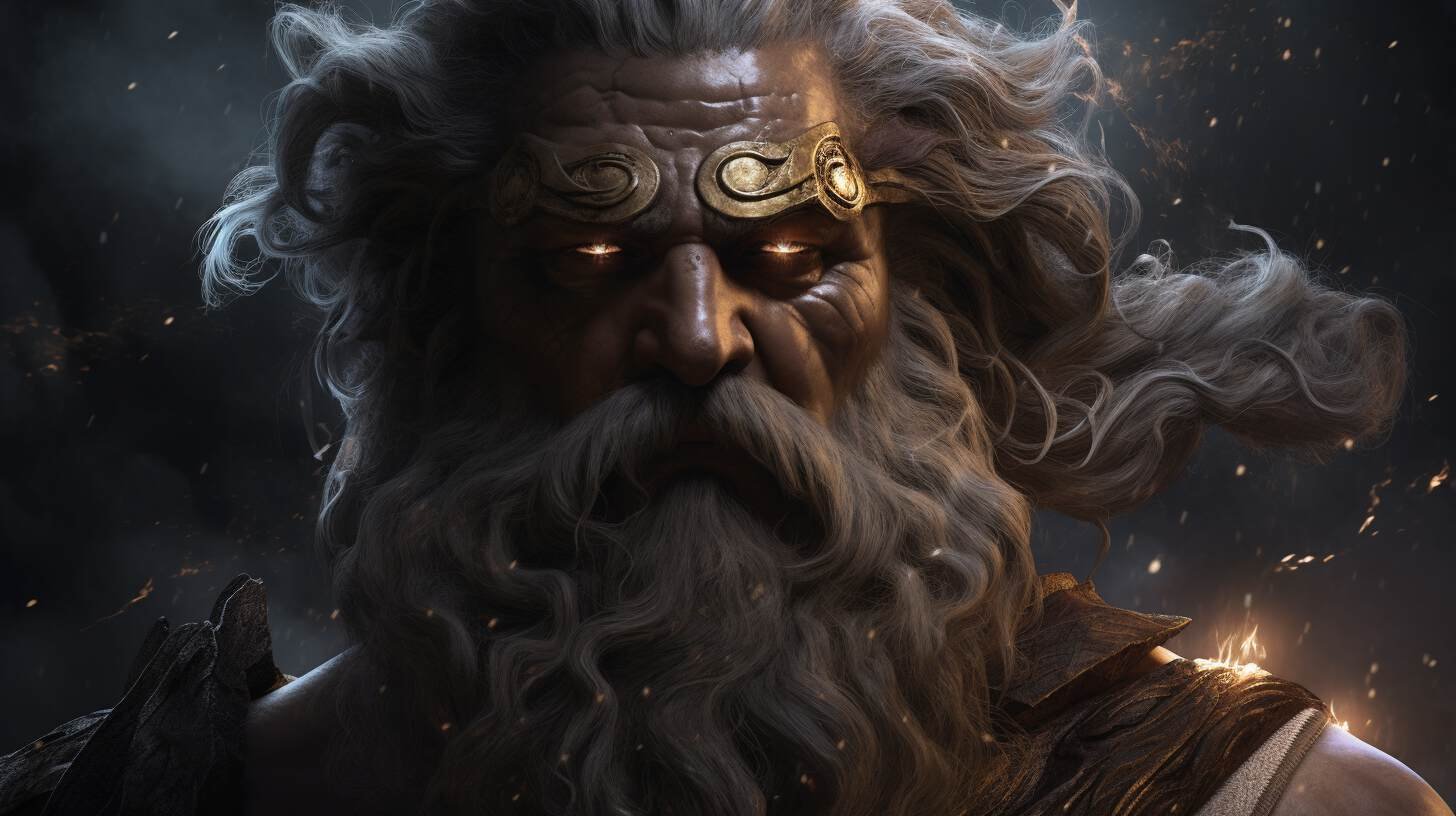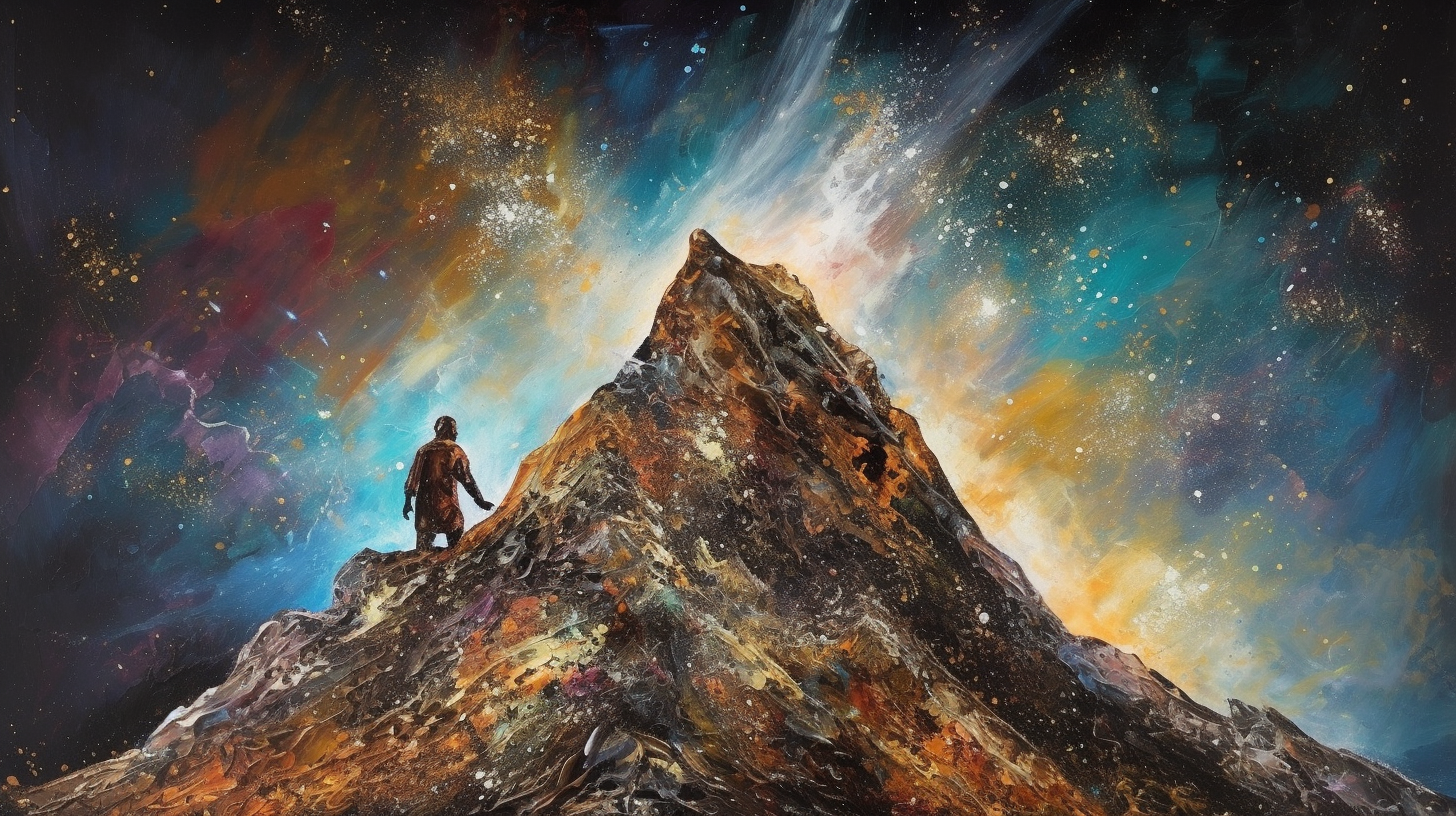What Is Divine Masculinity? An Ultimate Guide for Men
Table of Contents Show
In history, masculinity has been a chameleon, shifting its colors to blend into the ever-changing tapestry of societal norms. The ancient Romans revered Mars, the god of war, as the epitome of masculinity. Then there were figures like Odysseus, the hero of the Odyssey, and the fierce Germanic warrior Arminius, who waged war against the Roman empire fueled by the abduction of his beloved wife, showcasing the multifaceted nature of masculinity. Their tales, drenched in valor, passion, and at times, raw emotion, serve as a reminder that masculinity is not a monolithic concept but a spectrum.
However, the 21st-century man stands at a crossroads, bombarded by conflicting messages. On one hand, he's told to embrace sensitivity and emotional intelligence, while on the other, he's reminded of the traditional roles that defined his forefathers. Unfortunately, the modern world, with its rapid technological advancements and shifting societal norms, has left many men grappling with their identity. The age-old constructs of masculinity seem to be in a state of flux.
The rise in the discourse on masculinity in the late 20th century, indicates a growing interest in understanding this complex subject. Yet, amidst this chaos, emerges the concept of divine masculinity. A beacon for those lost in the tumultuous seas of identity, divine masculinity calls for a return to the core essence of manhood, unburdened by societal expectations and unapologetically authentic.
As the Invisible Man embarks on this journey, he will delve into the depths of divine masculinity, exploring its facets, understanding its significance, and ultimately, guiding the modern man towards a more authentic, fulfilling expression of his true self.
1. So, What Is Divine Masculine?
The notion of 'Divine Masculinity', unlike the often superficial and societal constructs of manhood, delves deeper, transcending the physical realm and tapping into the spiritual. It is marked by action, leadership, and a proactive approach to life.
This energy encourages men to take control, to assert themselves, and to be confident in their desires. It's about grounding oneself in the external world while also embracing the internal. But to truly grasp its essence, one must journey back in time, to the tales of gods and rebels, where the roots of divine masculinity lie.
These stories, often rooted in ancient myths and legends, unveil the concept of divine masculinity in history and culture, providing insights into the ideals of bygone eras. They serve as a mirror, reflecting societal norms and expectations of what it means to be a man. For example Zeus, the sky and thunder god of ancient Greece, Odin, the Allfather of Norse mythology and Shiva, the destroyer and benefactor in Hindu mythology.
2. How Can You Tell A Divine Masculine Man?
A man imbued with divine masculinity doesn't merely exist; he thrives, resonating with an energy that's both ancient and timeless. But how does one recognize such a man amidst the cacophony of modern life? Here are three telltale signs:
A. The Eyes Of The Storm
In the heart of chaos, when emotions run wild and uncertainty clouds judgment, the divine masculine man remains unflinching. His gaze, steady and unwavering, reflects a depth of understanding and a reservoir of inner strength. It's the kind of gaze that offers solace in turbulent times, assuring you that no matter how fierce the storm, there's a sanctuary of calm within reach.
B. Actions Over Words
While many might indulge in grandiose declarations and empty promises, the divine masculine man lets his actions do the talking. He understands the value of commitment, the sanctity of a promise made.
Whether it's in the realm of personal relationships, professional endeavours, or societal responsibilities, his actions resonate with integrity and purpose. It's a silent strength, one that doesn't seek validation but commands respect.
C. Divine Masculine Man Often Walks Alone
In a world that often rewards conformity, the divine masculine man isn't afraid to tread the path less travelled. He recognizes that true growth often lies outside the comfort zone, in the uncharted territories of the unknown. While society might label him a rebel or an outcast, he remains undeterred, for he knows that his journey is one of self-discovery and authentic expression.
In essence, the divine masculine man is not a relic of the past but a beacon for the future. He embodies the virtues that the world desperately needs today: authenticity, integrity, and a deep-rooted sense of purpose.
3. Ten Characteristics of Masculine Energy
Masculine energy, often misconstrued and misinterpreted, is a force that drives, protects, and empowers. It's not about dominance or aggression, but about clarity, purpose, and strength. It's the energy that propels one forward, that stands firm in the face of adversity, and that provides a safe harbor in turbulent times.
The 10 multifaceted characteristics of masculine energy are:
Decisiveness: A man of action, making choices with conviction.
Accountability: Owning up to mistakes and learning from them.
Boundary Setting: Knowing where to draw the line, in relationships and life.
Assertiveness: Speaking up, standing firm, yet without aggression.
Attentive Listening: Truly hearing and understanding others.
Emotional Intelligence: Recognizing and managing one's emotions and those of others.
Protectiveness: The innate desire to shield and safeguard loved ones.
Direction Giving: A natural leader, guiding others with clarity.
Self-Acceptance: Embracing oneself, flaws and all.
Genuine Happiness for Others: Celebrating others' successes without envy.
Each of these characteristics paints a picture of the divine masculine energy in action. It's an energy that's both powerful and gentle, assertive yet understanding. It's a force to be reckoned with, a dark masculine energy that shapes heroes, leaders, and visionaries.
4. Masculine Energy Examples
Masculine energy has been a subject of fascination, debate, and sometimes even disdain throughout history. It's a force that has shaped empires, inspired masterpieces, and led to both triumphs and tragedies. To truly grasp its essence, one must delve into the tales of men who embodied this energy in its rawest form. Let's embark on this journey through time, exploring the lives of those who exemplified pure masculine energy.
The Lone Wolf
The allure of solitude has often beckoned those with a fierce independent streak. Take the story of Henry David Thoreau, who retreated to Walden Pond to live deliberately and confront the essential facts of life. In his isolation, Thoreau discovered profound truths about nature, society, and the self, penning his observations in "Walden," a testament to the power of solitude in fostering deep introspection.
The Warriors of History
Spartans
Ancient Sparta is renowned for its unmatched warrior ethos. The tale of King Leonidas and his 300 Spartans at the Battle of Thermopylae epitomizes their martial prowess. Outflanked and hopelessly outnumbered, they chose to fight to the death, embodying Herodotus’ pronouncement that all Spartan soldiers would “abide at their posts and there conquer or die.”
Yet, the real Sparta was more nuanced. Men like Brasidas, who learned from his mistakes and adapted, showcased the adaptability and cunning that was as much a part of Spartan warfare as their famed courage.
Samurais
The Japanese samurai, bound by the code of Bushido, exemplified honor, courage, and loyalty. Miyamoto Musashi, a legendary samurai, was not just a warrior but also a philosopher and artist. His book, "The Book of Five Rings," delves into the strategy, tactics, and philosophy he employed in his duels, reflecting the depth and complexity of the samurai spirit.
Vikings
These Norse seafarers, often portrayed as mere raiders, were also explorers, traders, and settlers. The sagas of Ragnar Lothbrok, a legendary Norse hero, depict a man of both action and wisdom, navigating the challenges of leadership, fatherhood, and warfare.
The Artists and the Madmen
Dali: Salvador Dali, with his flamboyant mustache and eccentric behavior, was a maestro of surrealism. His paintings, like "The Persistence of Memory," challenge our perceptions of reality, showcasing the boundless realms of the masculine imagination.
Poe: Edgar Allan Poe, the master of macabre, wove tales of mystery and melancholy. His works, such as "The Tell-Tale Heart," delve into the darkest corners of the male psyche, exploring themes of guilt, obsession, and madness.
Van Gogh: Vincent van Gogh, whose life was marred by mental illness and tragedy, poured his soul into his paintings. "Starry Night" and "The Café Terrace at Night" are testaments to the tumultuous yet profound depths of masculine creativity.
These tales, from warriors to artists, offer a panoramic view of masculine energy in all its shades. It's an energy that can be fierce yet gentle, chaotic yet profound, and always, always mesmerizing.
5. Divine Masculine Vs Divine Feminine
The Divine Masculine and the Divine Feminine are two energies, often misconceived as mere gender roles, transcend physicality, representing the cosmic duality that gives life its rhythm and balance. To fathom their depth, one must venture beyond societal constructs and delve into the metaphysical realm where these energies dance their eternal dance.
How the Divine Masculine and Feminine Energies Intertwine?
Picture the universe as a grand ballroom. The Divine Masculine leads with assertiveness, while the Divine Feminine follows with grace. Their dance is not one of dominance or submission but of harmony and balance. Like the intricate steps of a tango, where one misstep can lead to chaos, the dance of these energies requires mutual respect and understanding.
The Yin to the Yang: Understanding the Balance and the Battle
Drawing from ancient Chinese philosophy, the concept of Yin (Divine Feminine) and Yang (Divine Masculine) encapsulates this duality. Nothing is purely Yin or purely Yang; they oppose yet complement each other. The Yin is receptive, nurturing, and intuitive, while the Yang is active, logical, and assertive. Together, they create the life-force energy “Qi,” the underlying energy that gives life to all physical things. The balance between Yin and Yang ensures the smooth flow of Qi, promoting physical and emotional health.
What the Divine Masculine Feels About Divine Feminine
The Divine Masculine, in all its strength and assertiveness, finds its purpose and direction in the embrace of the Divine Feminine. It's a symbiotic relationship, where one without the other leads to imbalance and chaos. The Divine Masculine, in its raw, unbridled form, seeks the nurturing and intuitive touch of the Divine Feminine to channel its energy constructively.
Consider the fiery passion of a volcano (Divine Masculine) that finds its calm in the depths of the ocean (Divine Feminine). The ocean doesn't extinguish the volcano's fire but embraces it, giving it direction and purpose.
In the heart of the Divine Masculine lies a profound respect and yearning for the Divine Feminine. It's not a sign of weakness but an acknowledgment of the truth that the universe thrives on balance. The Divine Masculine recognizes that its strength, when unbridled, can lead to destruction. The Divine Feminine offers the wisdom to use that strength judiciously. The divine masculine and feminine union is immutable.
6. Masculine Energy In Relationships
In human connections, the energy one exudes plays a pivotal role in the choreography of relationships. The divine masculine energy, often misconstrued as mere aggression or dominance, is a force that, when harnessed correctly, can lead to profound depths of intimacy, understanding, and mutual respect. But like any potent force, it can also wreak havoc if misdirected or misunderstood.
The allure of the divine masculine energy is undeniable. It's an energy that exudes confidence, assertiveness, and a sense of purpose. Women, irrespective of their own dominant energy, often find themselves magnetically drawn to this force. It's not just about physical attraction; it's about the promise of stability, protection, and direction.
Consider the timeless tales of women being drawn to leaders, warriors, or visionaries. From Cleopatra's fascination with Julius Caesar to the countless stories in literature and film, the narrative remains consistent: the divine masculine energy is captivating.
However, every relationship has its power dynamics, often influenced by the energies both partners bring to the table. The divine masculine, with its inherent assertiveness and drive, often takes the lead. But this doesn't mean a suppression of the partner's energy.
Rather, it's a dance, where sometimes the masculine leads, and at other times, it's essential for the feminine energy to take charge. Think of it as a tango, where both partners are equally important, and the beauty of the dance lies in the balance and interplay of energies.
7. Conclusion
In the end, living in a world that oscillates between chaos and order, where conflicting voices often drown out reason, the quest for the divine masculine becomes not just a journey of self-discovery but a necessity. The modern man stands at a crossroads, torn between the expectations of society and the whispers of his ancestral legacy.
In the tumult of conflicting ideologies, fleeting trends, and a relentless barrage of information, the divine masculine is a call to return to the core, to the primal energies that once guided our forefathers. Awakening the divine masculine energy is not about rejecting the modern world but about finding balance, grounding oneself amidst the storm.




























